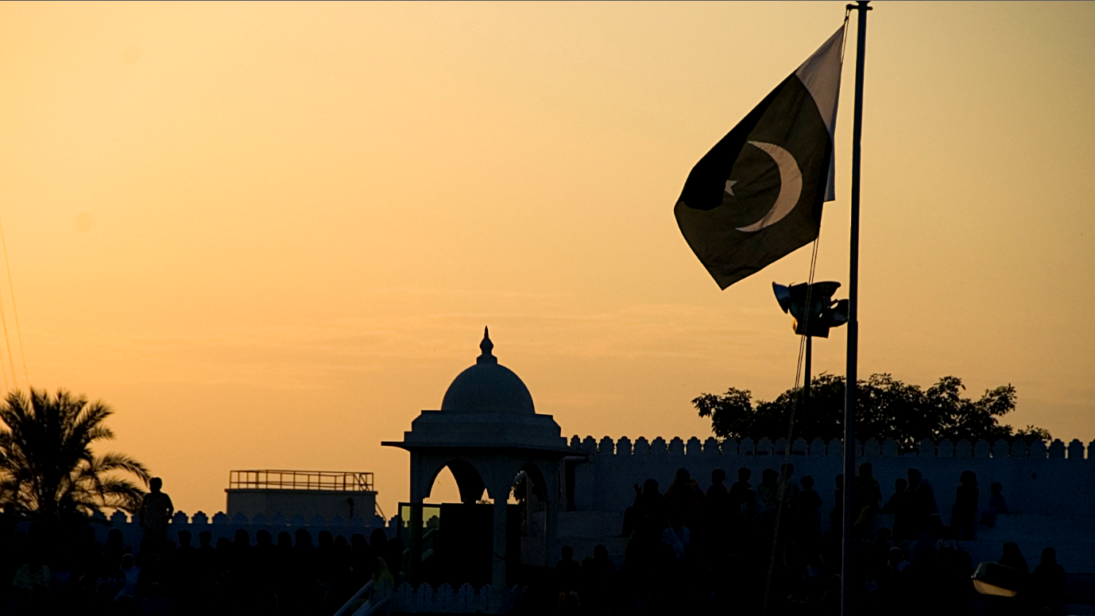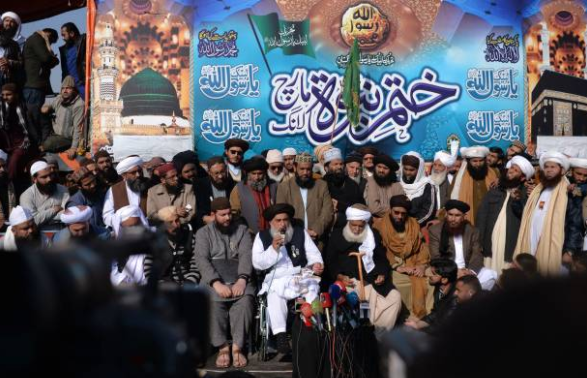
The calculated use of religious extremism has been a common feature in the politics of Pakistan, a country in which ethnic, linguistic, and nationalistic values have been sidelined by the state to project Islam as the nation’s unifying force. Traditionally, Islamist groups were used by the state to counteract political rivals and meet security and foreign policy objectives. However, of late, these groups have been gaining strength due to the deep institutional divisions within Pakistan.
These institutional divisions span the country’s military, judiciary, and electoral political system. For instance, the military establishment of Pakistan continues to control key strategic affairs and does not allow the policy recommendations of the elected civilian government to come to pass if it deems them incompatible with its own institutional interests and policies. While they do fight for power, the country’s civilian elites remain bitterly divided and have failed to unite as an institution to check the military’s influence in the country. In this contestation, both military and civilian leaders use Islamist groups to bolster their support: the Army utilizes them to intervene in domestic politics in order to meet foreign policy objectives while political parties in Pakistan form alliances with Islamist groups to achieve their electoral objectives and counterbalance the influence of their rivals. As for the country’s judiciary, it remains deeply politicized and vulnerable to outside pressures.
Due to these divisions, arguably, the country has reached a point where far-right Islamist groups now wield the influence of a state within a state. While Pakistan’s counterterrorism actions in the last three years have significantly reduced militant attacks in the country, Islamist groups with popular appeal among the most radical segments of society continue to offset the state’s efforts aimed at isolating their influence. For instance, during the recent sit-in of the Tehreek-i-Labbaik Ya Rasool Allah (TLYRA) in Islamabad, which shut down the country’s capital for more than three weeks in a protest over the country’s blasphemy laws, the government not only failed to disperse the protesters but also capitulated to a majority of their demands. Moreover, Pakistan’s so-called policy of “mainstreaming” Islamist groups by offering them political space only makes the problem worse: the policy doesn’t contain the objective to de-radicalize such groups. Rather, it provides them a platform to preach their violent narratives, further silencing moderate voices in the country. The last two by-elections have shown that Islamist parties, even with no previous experience in electoral politics, are becoming increasingly popular among voters.

The recent sit-in in Islamabad highlights how Pakistan’s internal divisions are creating political and social space for the radical ideals of Islamists. After the federal government negotiations with the protesters in Islamabad failed, the Islamabad High Court (IHC) declared the sit-in “an act of terrorism” and demanded action from the government. When police and other local law enforcement agencies failed to disperse the sit-in, the government called in the military for assistance. However, rather than taking action against the law-breaking protestors, the military legitimized their actions by suggesting to Prime Minister Shahid Khaqan Abbasi that the sit-in should be handled peacefully and violence should be avoided by “both sides.” Eventually, the military brokered a deal between the protesters and the government, which included the resignation of the federal law minister along with a number of other unconstitutional demands.
The ongoing politicking among state institutions and compounding disagreements regarding how best to deal with the growing influence of Islamist groups means that Pakistan’s militancy challenge is far from over. Unfortunately, the military and civilian leadership have yet to respond to this challenge collectively. And what is a cause for further concern is that as elections in Pakistan draws closer, political parties in the country are devising electoral alliances with Islamist groups that directly or indirectly encourage religious extremism in one form or another.
Fortunately, despite the increasing electoral popularity of Islamist groups, it’s unlikely that they will be in a position to win parliamentary elections at the national level. However, their growing appeal among the public points towards the increasing conservatism and potential radicalization of Pakistani society. Moreover, the growth of such groups will perpetuate a culture that discourages a tolerant, inclusive, and diverse society at the expense of the country’s future. Imposition of ideological values regarding the true interpretation of Islam on others is incompatible with Pakistan’s future as a rational democratic state.
The country’s ruling elite need to look beyond their narrow self-interest if they are sincerely interested in tackling the problems of militancy and extremism in Pakistan. They must realize that hardline Islamic groups are the direct beneficiaries of institutional divisions inside the country. Providing political space to these groups not only emboldens and legitimizes their radical narratives, but also reinforces existing violent social attitudes toward minority Muslim and non-Muslim communities. Moreover, legitimizing such group’s ideologies under the patronage of the state will not only pave the way for radical groups to acquire the power needed to threaten any democratically-elected government but will also assist them in stepping up efforts to streamline national political and social debates in line with their own conservative-radical perspectives.
***
Image 1: bm1632 via Flickr (cropped)
Image 2: Aamir Qureshi via Getty


